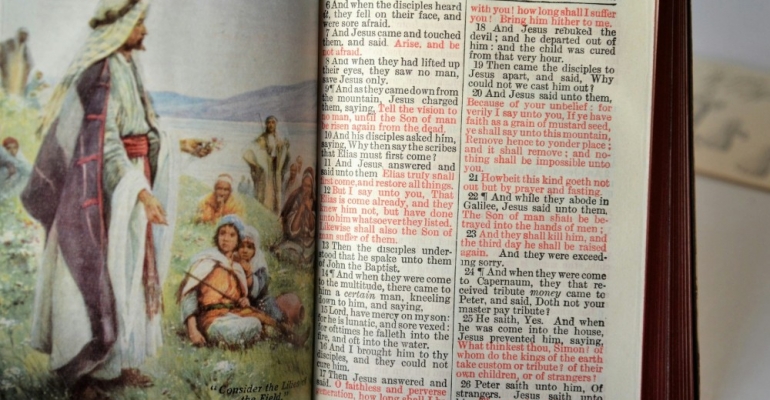
Is the Bible a Story?
The Bible is a story. I’m sure many of us have said this; many of us will even have taught it. It’s a story which runs from Genesis to Revelation, from Creation to the New Creation, and recognising this fact is vital to reading the Bible well. But what if it isn’t? Perhaps the Bible is actually better understood as poetry.
This is an idea which has been put forward by Brent Strawn in a TheoEd talk and discussed in a recent episode of the OnScript podcast (which, incidentally, also proves that Old Testament scholars know how to have a good laugh!)
Strawn’s claim is that, ‘The Bible is not a story. Instead, the Bible is far more like a poem than it is a story, and therefore we think about Scripture better and live our lives with Scripture better when we think of the Bible as a poem, not as a story.’
Strawn observes that the Bible as story view is popular despite it not being hard to see problems with the idea, most obviously the fact that plenty of what comes between Creation and the New Creation is not story (there’s poetry, wisdom, prophecy, and letters), and even the bits which do tell a story don’t trace one sequential narrative line (there are retellings, such as Deuteronomy and Chronicles, and parallel accounts of the same narrative thread, such as in the Gospels). To view the Bible as a story is a construction and not a very good one. The Bible isn’t a story.
However, to view the Bible as poetry, Strawn suggests, though admittedly still a construction, poses fewer problems and offers several benefits. The features of poetry which can benefit our engagement with the Bible are candour (poetry can be more honest about reality), contradictions (poetry can better cope with tensions), contemporaneity (poetry can be reused by later readers), and continuation (poetry encourages continual engagement). Together, these features mean that we are better equipped to handle and respond to the Bible when it is viewed as poetry.
A Combined Construction
I think there’s some merit to what Strawn is proposing. I’m sure I’m not the only one who has taught the Bible’s story and has felt acutely aware (and somewhat uncomfortable) about skipping over many of the biblical books with little or no mention. The idea that the Bible is a story is problematic. The approach can also shape which parts of the Bible we find easier or harder to understand and can therefore cause us to neglect some of what God has said.
At the same time, though Strawn is honest that viewing the Bible as poetry is also a construction and so makes his case based on the need to work with the most helpful construction, I can’t help thinking that the argument against the Bible as narrative can be inverted and set against the Bible as poetry. What do we do with all the parts which clearly aren’t poetry? It may be true that the collection of texts shares some features with poetry, but does this mean they are poetry or does it just mean there are shared features, possibly explained by some other factor?
Perhaps a better construction is to combine what is good from the two approaches. The Bible isn’t a story, but there is a story of God’s dealings with his creation which is told in parts of the Bible. Perhaps we should speak of God’s big story revealed in the Bible, rather than the Bible’s big story. And the Bible isn’t poetry, but it does contain poetry (and wisdom, and prophecy, and apocalyptic, and letters). Perhaps we should see these non-narrative elements as a poetic parallel track alongside the story, which offers a commentary on the story and guidance for how to live in it. And the features of poetry which Strawn notes as helpful to apply in our approach to the Bible, could be applicable to the entirety of the Bible because of its position as Scripture. The distinctive nature of Scripture shares some of poetry’s key features.
So, I guess the Bible isn’t a story, and the Bible isn’t poetry, but perhaps the Bible is a story and poetry. That might seem like a contradiction, but maybe coping with tensions is one of the strengths of viewing the Bible as Scripture.